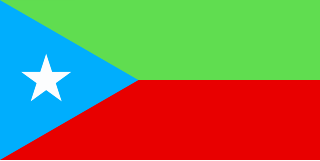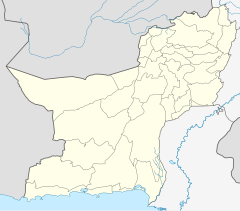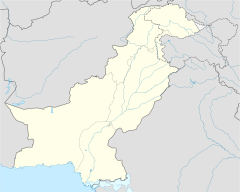
The Insurgency in Balochistan is an insurgency or revolt by Baloch separatist insurgents and various Islamist militant groups against the governments of Pakistan and Iran in the Balochistan region, which covers the Pakistani province of Balochistan, Iranian province of Sistan and Baluchestan, and Balochistan of southern Afghanistan. Rich in natural resources, this is the largest, least populated and least developed province in Pakistan and Iran, and armed groups demand greater control of the province's natural resources and political autonomy. Baloch separatists have attacked civilians from other ethnicities throughout the province. In the 2010s, attacks against the Shia community by sectarian groups—though not always directly related to the political struggle—have risen, contributing to tensions in Balochistan. In Pakistan, the ethnic separatist insurgency is low-scale but ongoing mainly in southern Balochistan, as well as sectarian and religiously motivated militancy concentrated mainly in northern and central Balochistan.

The Balochistan Liberation Army, is a Baloch ethnonationalist militant separatist organization based in Afghanistan. BLA's first recorded activity was during the summer of 2000, after it claimed credit for a series of bombing attacks on Pakistani authorities. BLA is listed as a terrorist organization by Pakistan, the United Kingdom, and the United States.
This is a list of terrorist incidents in Pakistan in 2015.
This is a list of terrorist incidents in Pakistan in 2016. Pakistan was the 10th most dangerous country by criminality index in 2016.

United Baloch Army was a militant group, fighting for the separation of Balochistan. The group has been designated as a terrorist organisation by the Pakistani government. The government of Pakistan banned the group on 15 March 2013. The group has also been classified as a terrorist organisation by Switzerland's government.
Terrorist incidents in Pakistan in 2017 include, in chronological order:
Operation Radd-ul-Fasaad is a codename of a combined military operation by the Pakistani military in support of local law enforcement agencies to disarm and eliminate the terrorist sleeper cells across all states of Pakistan, started on 22 February 2017. The operation is aimed to eliminate the threat of terrorism, and consolidating the gains of Operation Zarb-e-Azb which was launched in 2014 as a joint military offensive. It is further aimed at ensuring the security of Pakistan's borders. The operation is ongoing active participation from Pakistan Army, Pakistan Air Force, Pakistan Navy, Pakistan Police and other Warfare and Civil Armed Forces managed under the Government of Pakistan. More than 375,000 operations have been carried out against terrorists so far. This operation has been mostly acknowledged after Operation Zarb e Azb.
On 23 June 2017, a series of terrorist attacks took place in Pakistan resulting in 96 dead and over 200 wounded. They included a suicide bombing in Quetta targeting policemen, followed by a double bombing at a market in Parachinar, and the targeted killing of four policemen in Karachi.
Terrorist incidents in Pakistan in 2018 include:
On 23 November 2018, an armed assault on the Chinese consulate in Clifton, Karachi, Pakistan killed four people in an hour-long shootout. Those killed were two policemen, two Pakistani civilians and the three attackers. No Chinese nationals were injured or killed in the attack. The three attackers were also killed.
Terrorist incidents in Pakistan in 2019 include:
The 2019 Quetta bombing was a suicide bomb attack on an open marketplace in Quetta, Pakistan on 12 April, killing 21 people. The bombing took place near an area where many minority Shiite Muslims live. At least ten Hazara, including nine Shiites, were among the dead. Two paramilitary soldiers were also killed in the bombing. PM Imran Khan expressed condolences for the lives lost, directed the authorities to ensure the best medical treatment for the injured, and ordered an increase in security for Shiites and Hazara people. Lashkar-e-Jhangvi and ISIL later accepted responsibility for the attack, stating that "their target were Hazara people."
This article is an incomplete outline of terrorist incidents in Pakistan in 2021 in chronological order.
Terrorist incidents in Pakistan in 2022 include:
The events listed below are both anticipated and scheduled for the year 2023 in Pakistan.
This article is an incomplete outline of terrorist incidents in Pakistan in 2023 in chronological order.
This article is about terrorist incidents in Pakistan in 2024 in chronological order.

The 2024 Afghanistan–Pakistan skirmishes were a series of armed clashes consisting of cross-border airstrikes and exchanges of gunfire between Afghanistan, its allied insurgents and Pakistan, at many locations along the Durand line, including North Waziristan, South Waziristan, Wana, Dera Ismail Khan, Shangla, Khost, and Paktika. Subsequent attacks were also launched in Turbat and Gwadar in Balochistan province, by the Balochistan Liberation Army. Militant attacks on CPEC and Pakistani military bases accommodating US aircraft pose a threat to Chinese and American interests in Pakistan.
On 20 March 2024, the Gwadar Port Authority Complex was attacked by armed Baloch separatists. All eight militants and two soldiers were killed in the attack.
The Attack on PNS Siddique was a terrorist attack that occurred on March 26, 2024, at the PNS Siddique Naval Air Base in Turbat, Pakistan. The attack was carried out by the Majeed Brigade of the Balochistan Liberation Army (BLA). The BLA claimed responsibility for the assault, citing opposition to Chinese investments in the Baluchistan.




